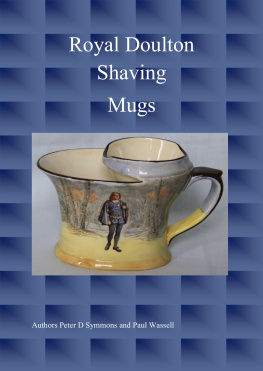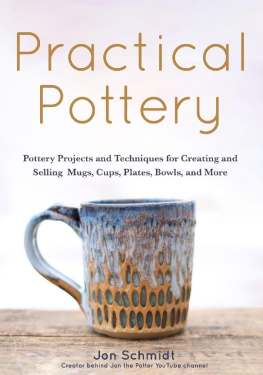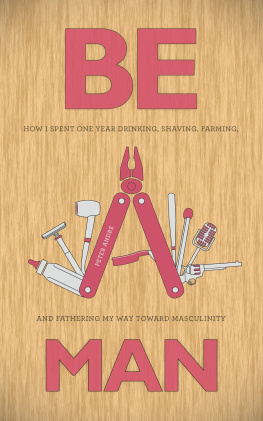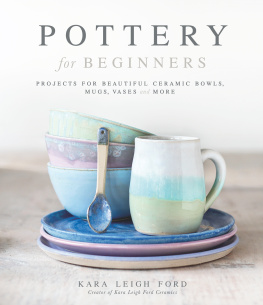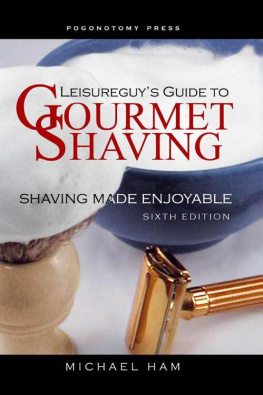Shaving Mugs Series Book 1
Royal Doulton Shaving Mugs
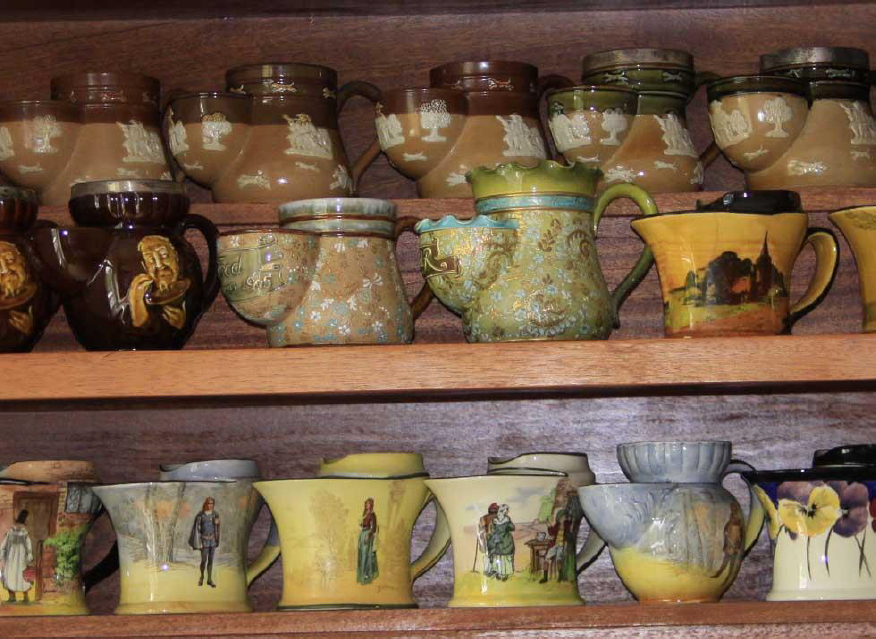
First English Edition 2016
The authors reserve all rights. No part of this book can be reproduced, stored in a retrieval system or transmitted in any form without the written permission of the authors.
Peter Symmons and Paul Wassell have asserted their moral right to be identified as the authors of this work.
The authors would like to ask the reader. If they have any Royal Doulton shaving mugs or information that does not appear in this book, and would like to share it with other collectors in any future editions. To send the pictures in Jpeg and written information in Word with your name to..
Introduction
Ever since becoming good friends though collecting shaving mugs ourselves, we have always talked about writing a book on the subject together. The shaving mug series will cover all aspects of quality shaving mugs to increase collectors knowledge about shaving mugs. The photographs of the shavings mugs within the books are from the authors own collection. It is not our intention to cover the history of the pottery, as we want to concentrate on the shaving mugs themselves.
Brief History of Royal Doulton
Doulton registered as a company in 1815. The factory at the time was in Vauxhall Walk, Lambeth, London. Trading as Jones, Watts & Doulton. In 1820, the trade name changed to Doulton & Watts, with the business specialising in making stoneware products. John Watts then retired in 1853. Again the company renamed itself in 1854 to Doulton and Co. In 1877, Doulton purchased the small factory of Pinder, Bourne & Co, at Nile Street in Burslem, Staffordshire, which placed Doulton in the region known as The Potteries. Doulton right to use Royal was granted by King Edward VII in 1901.
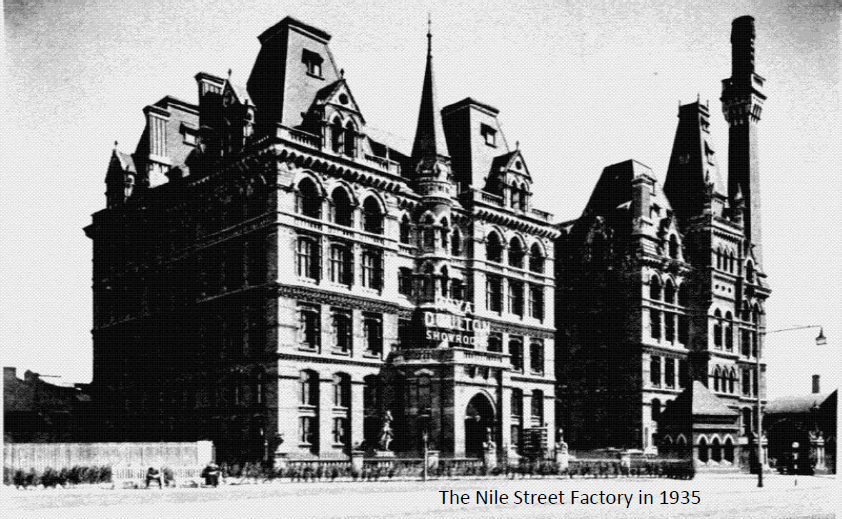
Brief History of Shaving Mugs
Pre-Eighteenth Century
Barber-surgeons could be found in most medieval towns and, as well as trimming and cutting beards and hair, were also known for bloodletting and amputations. The most common of these was bloodletting, a commonplace procedure. Use of anaesthetics was for those who could pay; many people suffer the pain with only a plank of wood to bite on. By the fifteen century within England, The Fellowship of Surgeons merged with the Barbers' Company in 1540 by Act of Parliament to form the Company of Barbers and Surgeons. The Act specified that no surgeon could cut hair or shave another and no barber could practice surgery; the only common activity was the pulling of teeth. By the end of the seventeenth, there was a great advance in the use of metal to make the razors sharper.
Eighteenth Century
By 1750, the advancement in razors blade enabled men to shave themselves. Financially well off men, had a manservant to shave them.
Nineteenth Century
Designs for safety razors date back to at least 1762, but they didn't catch on until 1828. In 1847, William Henson invented the hoe-shaped razor that most of us have in our bathroom cabinet, and in 1895 a traveling salesman named King Camp Gillette combined this shape with the idea of shaving with a disposable double-edged blade.By the late 1800s to the 1900s, pottery-shaving mugs were being mass-produced. With quality shaving mug produced by Doulton, Worcester, Coalport, and Dresden.
What is a Scuttle Shaving mug?
The word scuttle comes from the Latin word Scutula, meaning a shallow pan. By 1860s a mug that could hold hot water and soap was patented, due to it being similar to a coal-scuttle it came known as a scuttle mug. The main body of the scuttle-shaving mug holds the hot water as seen in Fig2. The soap drainer is either detachable or moulded into the mug as seen in the picture in figure1. The first patent of a scuttle mug was by Frank Clock from Boston USA in 1860. Clocks shaving mug had no holes due to only soap powder and flakes were available. The scuttle mug came about for ease of use, so the person shaving had his or her hot water, soap and razor to hand in one place.

Fig1
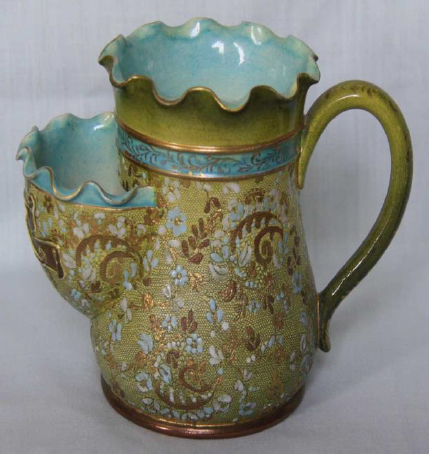
Fig2
White and Blue Glaze Ware
We believe that this shaving mug is the earliest of the Doulton shaving mugs in the authors collection. It has a white background with blue hand painted flowers over the body and soap holder and finished with a glaze. Although an unusually shaped mug, it was probably conceived by the potters after Burslem opened in 1877.
The originality shown in the shape of the mug is not repeated in any of the later Doulton shaving mugs, as they are all fairly basic scuttle shapes.
The pictures of the shaving mug below in figure 3 and 4 show the mug with a fixed soap holder; design to used with soap powder, as it does not have any drainage holes.
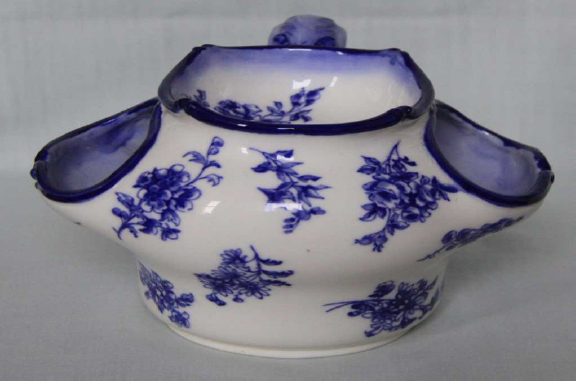
Fig3
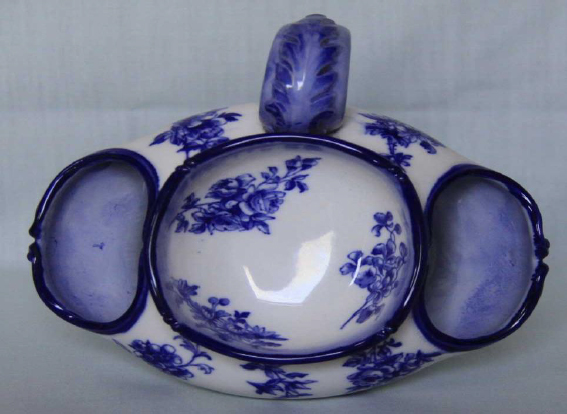
Fig4
Harvest Ware
A popular pattern produced in a wide range. The shaving mugs illustrated in figures 5 and 6 are not as common as other Harvest Ware pottery, due to the Victorians not being inclined to spend the money on items that would not have been on public display, making the mug generally very rare to find.
Harvest Ware was mainly made between 1885 to the beginning of World War One; the design did not change very must during that period. They are difficult to date, however, two points to look out for when dating a Harvest Ware mug, one will be the style of the back-stamp which change from Doulton Lambeth to Royal Doulton in 1901. The second point would be the hallmark on the silver rim. But be aware this too could be deceptive as there are clear indications that the silver rims were not used in the order they were delivered.
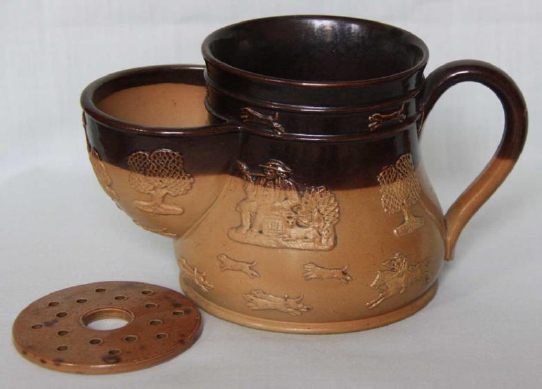
Fig5
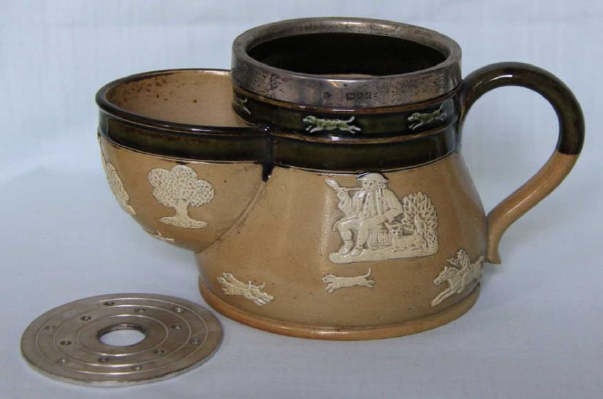
Fig6
Series Ware Shaving Mug
The Coaching Days
The inspiration for Series Ware came from Charles J Nokes who joined the Doulton Company at Burslem pottery in 1889. Once he became Art Director he employed well-known artists to decorate blank pottery to produce novelty art wares. The Series Ware shaving mug appeared from 1920s to possibly the early part of the 1930s
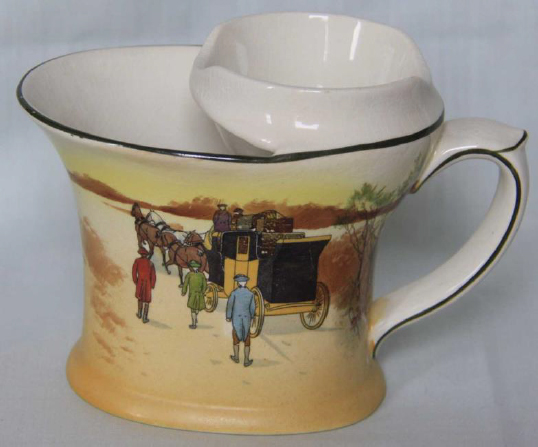
Fig7
The Coach and Horses Series Ware shaving mug illustrated in figure 7 and 8 are very interesting in so far as it depicts the London to Northern England stagecoach. In the picture Figure8, it features a game bird hanging on the back of the coach, a little high because it took the coach some while to get from the shoot to the table. This is the origin way game is now eaten some two or three-weekold.
Next page
